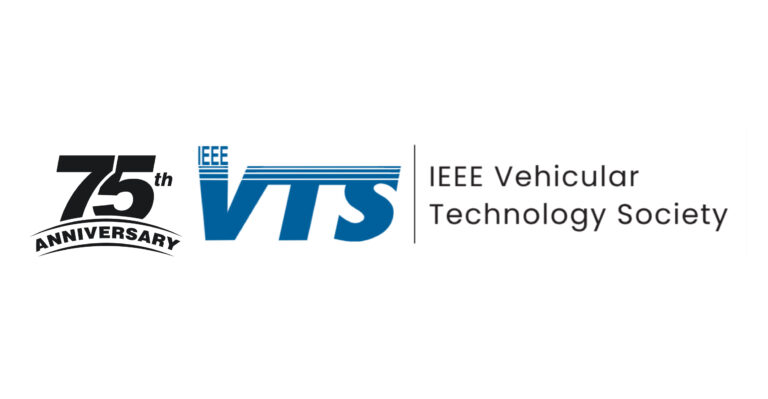 Those who are introduced to the IEEE as students often develop life-long relationships with the organization, finding ways to contribute to the IEEE as it enriches their lives and careers. Anastasia Georgouli is no exception. Georgouli, who is currently a member of the IEEE Cyprus Section Executive Committee, became involved in the IEEE at the end of 2005 during her graduate studies in Electrical and Computer Engineering and the University of Patras in Greece. “With this first engagement with the IEEE Student Branch [at my university], I literally fell in love with IEEE and its mission and became passionate about it.” Georgouli continued to stay involved throughout her graduate studies at the University of Cyprus, eventually founding both the IEEE Entrepreneurs Network (EN) and IEEE Consultants’ Network (CN) in Cyprus, and developing industry partnerships as IEEE R8 Industry Ambassador.
Those who are introduced to the IEEE as students often develop life-long relationships with the organization, finding ways to contribute to the IEEE as it enriches their lives and careers. Anastasia Georgouli is no exception. Georgouli, who is currently a member of the IEEE Cyprus Section Executive Committee, became involved in the IEEE at the end of 2005 during her graduate studies in Electrical and Computer Engineering and the University of Patras in Greece. “With this first engagement with the IEEE Student Branch [at my university], I literally fell in love with IEEE and its mission and became passionate about it.” Georgouli continued to stay involved throughout her graduate studies at the University of Cyprus, eventually founding both the IEEE Entrepreneurs Network (EN) and IEEE Consultants’ Network (CN) in Cyprus, and developing industry partnerships as IEEE R8 Industry Ambassador.
We spoke with Georgouli to learn more about her experience, including what kinds of resources the IEEE can provide to both young professionals and entrepreneurs.
**
How did the IEEE help you as a young professional and entrepreneur?
The IEEE has provided me with the necessary structure to develop as a young student of Electrical and Computer Engineering with many aspirations and aspirations for life, but initially with the prospects of education, participation and action in the field of science, engineering and of life in general. It has helped me to develop my interpersonal relationships, my sociability, my organizational, participative and creative skills to a great extent, as well as my self-confidence. The IEEE gave me the opportunity to evolve by pointing out what possibilities I had in front of me.
What is the most useful IEEE activity you’ve been involved in, and why?
The most useful activity in which I participated was the creation and organization of the IEEE Entrepreneurs Network in Cyprus. I already had the experience of attending student affiliated IEEE events and had already acquired work experience. Living during the economic crisis, I was given the opportunity through the structures that had been developed much earlier but in a very specific place (Boston, USA, as opposed to the majority of IEEE’s activities that are usually global and homogeneous) to create an opportunity to visualize and express creativity and hope for growth as well.
This allowed for collaboration of our talented young people, who suffered from the effects of the economic crisis and its consequent unemployment or inappropriate working conditions. Another reason that this activity was very useful for me, was that I organized and ran it mostly on my own, thus I had to get involved in the whole spectrum of activities of this IEEE initiative.
It also offered me sources and opportunities to improve my knowledge of the subject of my studies and work, and finally offered me opportunities that I had not imagined to cultivate my business spirit and acquaintance with the business world inside and outside Cyprus.
What is the most interesting entrepreneurial project you’ve worked on? What did you learn from this, and how did you apply it?
The first entrepreneurial project with which I’ve been involved is happening at this moment. We are working on the beta phase of a mobile application that is related to the tourism sector. It is quite exciting to work with people I admire and to be able to work smoothly with them. And I am very happy to be able to apply the knowledge that I have gained from my voluntary and personal involvement with entrepreneurship and the entrepreneurial spirit. Of course I’ve been working for many years now as a self-employed professional, which in many terms requires having the entrepreneurial quality.
In what ways do the needs of entrepreneurs vary by region? Join the discussion on IEEE CollabratecTM.
IEEE Collabratec sign up is free using your IEEE Account.
I am hopeful that the entrepreneurial project I am now a part of will be a great adventure for me and the rest of the team and that we will learn many valuable lessons throughout this experience and get better, learn from our mistakes and give to our users a handy and pleasant using experience.
What kind of “tools” do today’s entrepreneurs want/need, and how is the IEEE positioning itself to be of value to this segment?
Most of all I think that today’s entrepreneurs need motivation, opportunities to network, and access to both less and more experienced entrepreneurs who can inspire them with their real stories and experiences, successes and failures.
Moreover I think that they need to be given access to co-working spaces, entrepreneurial incubating processes and many more.
As much as our school boys and girls, as well as our teenagers and young students and professionals are exposed to all this intriguing environment I described above, from an early age, we are going to be surprised by the positive results this is going to have in our youngsters’ mindset and their successes in business competitions and in the increase in their involvement in entrepreneurial ventures.
Why is it important for the IEEE to provide resources to young professionals and entrepreneurs?
Young professionals and entrepreneurs are an important pillar of economic development, technological upgrading and use of technology to enhance the quality of life in today’s society. It should be therefore a priority for IEEE to support these groups of people, to provide incentives, access to new knowledge, to organize seminars and conferences, and other actions that will enable young professionals and entrepreneurs to develop, to bloom!
Resource Links:
- IEEE Entrepreneurship Website
- IEEE Entrepreneurship Worldwide Events Calendar
- IEEE N3XT Facebook
- IEEE N3XT Twitter
- IEEE Cyprus Entrepreneurs’ Network
- IEEE Entrepreneurship Exchange IEEE Collabratec ™ Community







One Response
Successful entrepreneurship is not about a great product or great features (which is what excites technologists the most), but knowing what the market wants or needs in the future and getting market feedback. Most importantly, its about understanding the finances of a start-up: being able to predict the actual costs and time of bringing your product to market (most novice startups are off by a huge margin); accounting for both worst case and best case scenarios (so often I have seen startups pitch only the ideal scenario, e.g. not accounting for an off-shore parts supplier going on strike and bringing your whole production line to a halt); willing to pivot to make your business a success and being able to assess the costs involved for the pivot (a lot of start-ups are too attached to that incredible feature or market segment they want to target, taking on unnecessary losses while they mull over a pivot). Understanding cash flows takes a start-up a long way on the road to success.